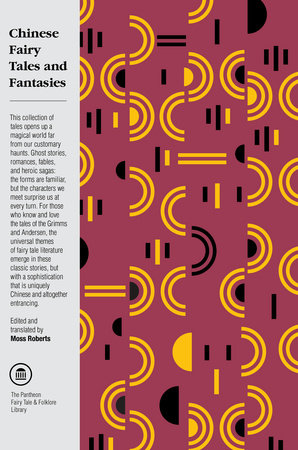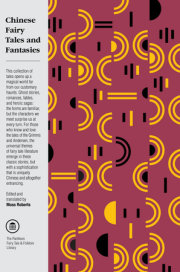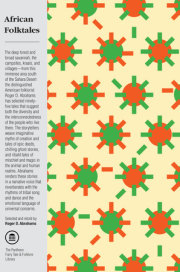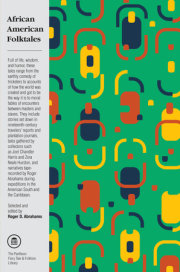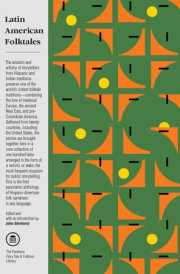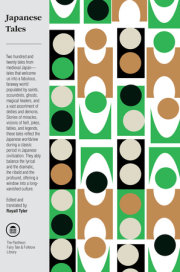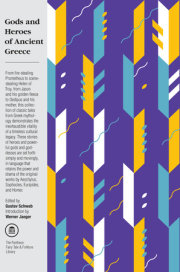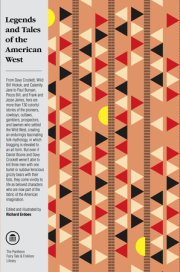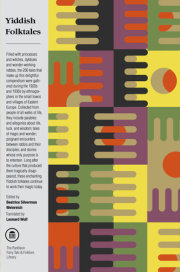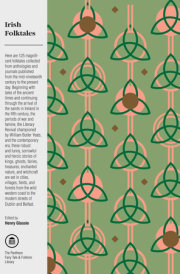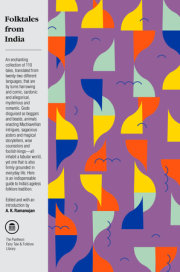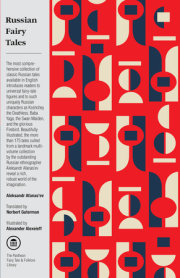The Cricket During the Ming reign, known as Pervasive Virtue, cricket fighting was very popular at court, and each year the populace had to supply crickets for the noblemen to test in battle. In Floral Shade, out county in western Shensi, the cricket is not common. But our magistrate wanted to curry favor with his superiors, and he managed to find them one that proved to be a mighty warrior. As a result, Floral Shade was appointed a royal supplier of crickets to the court.
Naturally the magistrate then shifted the responsibility down to the neighborhood heads, and crickets became rare and valuable in the county. In hopes of pushing the price up, the young bloods in our towns often hoarded the outstanding specimens they caught. Cunning local officials were quick to use cricket hoarding as an excuse for searching people’s houses. And whenever they looked for cricket collections, they confiscated so many other goods that they ruined several families at a time.
In Floral Shade there lived a man called Make-good. He had spent years as a candidate for the lowest degree, but it still eluded him. Make-good was somewhat pedantic and unassertive, and crafty officials maneuvered him into the post of neighborhood head. Once there, he was stuck in the job; a hundred schemes and tricks would not have extricated him. When he could not extort enough taxes from the people, he had to make up the money out of his own pocket. Within a year the whole of his property was exhausted.
The same thing happened when it came time to collect crickets: Make-good could not bring himself to take them from his neighbors, even though he could not fill the quota set by the higher-ups. Trapped in this frustrating situation, he wanted to die.
“What good will dying do?” his wife asked. “Go out and look for crickets yourself. Maybe you’ll have some luck.”
To this Make-good agreed, and day after day he left home early and returned late. Carrying his bamboo tube and brass wire cage, he searched among crumbling walls and clumps of wild grass. He probed every rock and flushed every hole, but nothing came of it. Although he managed to find a few specimens, they were inferior and weak, far below the standard.
The magistrate, however, held Make-good strictly to schedule. After ten days the unlucky man could furnish no crickets and had to face the punishment of one hundred strokes. He was beaten until the blood ran down both legs and he could have moved to catch a simple worm. Tossing on his bed, he wished only to make an end of himself.
It happened then that a hunchbacked fortune teller who could read the future came to the village. Make-good’s wife took some money for a fee and went to consult her. Crowds thronged the fortune teller’s door; Make-good’s wife entered the house along with the rosy-cheeked, the grey, and the old. Low incense tables stood in front of an inner chamber screened by curtains. Those who had come with questions were lighting their incense for the crucibles and offering their respects with low bows that ended with the forehead pressed to the floor. The fortune teller stood to one side staring at the sky and chanting to bring the assembled multitude good luck. Her lips opened and closed but formed no intelligible words. The crowd listened with reverent attention. Every few minutes a piece of paper, bearing words that spoke perfectly to a petitioner’s concern, would slip out of the curtained chamber.
Make-good’s wife placed her money on the stand and performed the same obeisance as her predecessors. In the time it takes to have a meal, the curtains began to quiver and then issued a slip of paper, which fell to the floor. It bore not a single word but only a picture; a sketch of a neglected shrine behind which a small mountain rose from grotesque rocks. The rocks rested amid clumps of vegetation, and a prize greenhead cricket lurked there. Beside it was a frog that seemed about to leap and dance.
Puzzled, the woman scrutinized the picture inch by inch. When her eyes came to rest on the cricket, she gazed with rapt attention, folded the paper, and went home to show it to her husband.
Make-good examined it and mused: “This has to be a way of telling me where to catch a cricket!” He looked long at the scene. It reminded him of a Buddhist temple east of the village. Painfully he arose, supporting himself on his staff, and hobbled with sketch in hand to the temple. At the rear of the building were many ancient graves, and he threaded his way through them. In one spot, strangely shaped rocks appeared virtually as the sketch showed. Alert, cautious, searching minutely, he pushed farther into the thicket. There was neither trace echo of what he had come for, but he groped onward.
Then a frog leaped out of the bushed. Make-good was stunned. He swiftly followed it, and the frog dove into the grass. Right behind, Make-good parted the clump of grass and stared. An insect was crouching at the base. He pounced; it slipped into a crevice of the rocks. He tickled it with a sharp blade of grass but could not make it come out. At last he flushed it with the bamboo tube, and the bug appeared, a magnificent specimen. Make-good pursued it and caught it. The insect had a large body and a long tail. Its neck was a dark green, its wings the color of gold.
Elated, Make-good caged the cricket and returned home, where his whole family rejoiced as if he had brought great treasure. They placed in the cricket in a tub, fed it all kinds of grain, and guarded it against the time when Make-good would have to meet his next quota.
Now, Make-good had a nine-year-old son, who stealthily uncovered the cricket’s tub one day when his father was out. Up the bug leaped and was gone like a shot, so swift that no man could have caught it. By the time the desperate boy hunted it down and trapped it under his hand, a leg was torn off and its belly was split. Moments later, it died. The boy cried out in panic. Then he told his mother, and her face turned deathly pale. “Evil Karma!” she swore. “Now comes the day of ruin! When your father gets home he’ll settle with you!” The boy left in tears/
Shortly the fathered returned, and when his wife told him what had happened he felt as if he had been drenched with ice and snow. In a rage he looked for the boy, but the child was gone without a trace. Afterward the found him in the well.
The father’s rage was turned to grief. He pounded on the ground and cried out; his one wish was for his own death. Husband and wife were desperate and desolate. Their cottage sent up no smoke. Silently they regarded one another—the had nothing to live for.
As dusk approached they took the boy to be buried. Yet when they caressed him there was a slight sign of breathing. Overjoyed, they laid him on the bed. As the night wore on, the child seemed to revive. Husband and wife took comfort. But the boy’s vital spirits did not rally; his breathing was low and suppressed, as if he wanted to sleep. Then Make-good turned to look at the empty cage and was again overcome by despair over the lost cricket. He could give no further thought to his son.
Make-good still lay awake, stiff with anxiety, when the sun carried the day up from the east. Suddenly he heard the crackling chirp of an insect outside. He bolted upright and went to look. There was a cricket, very large! Elated, he tried to catch it, but it leaped away abruptly, chirping as it gained speed. Then Make-good succeeded in cupping his hand over it. He could feel nothing tickling his palm, however, and decided that the cricket had gotten away. But when he lifted his hand, the bug shot out again, and Make-good followed swiftly. He turned a corner—only to lose the insect forever.
Make-good stayed where he was, looking all around, until he spied another cricket crouching on the wall. However, it turned out to be short and small, black and red I color—nothing like the one he had lost. Make-good inspected it indecisively for a moment and then resumed the search for the other cricket. But the bug on the wall dove down between his lapel and his sleeve. It had a shape like a mole cricket, wings like plum blossoms, a squarish head, and long legs. Thinking that after all it might have possibilities, Make-good decided to keep it.
He caged the cricket and took good care of it, though he was afraid that it might not please the authorities. Then an idea struck him: he would test the creature in combat first. He sent for a young wag of the village who had a cricket named Crabshell Green which daily won the local matches. At the sight of Make-good’s cricket, the wag suppressed a laugh, brought out his own, and placed it in a cage beside the other. Flustered, Make-good stared at the long, imposing Crabshell Green. “What a miserable insect I have raised,” thought Make-good. “It will never amount to anything. But I might as well risk it, if only for laughs.” So he put his cricket into the tub for combat.
Make-good’s small cricket crouched and did not move, like a warrior steeling himself for combat. The village wag was now guffawing. Make-good brushed his bug’s antennae with a bristle to arouse it. Still it did not move. The young man held his sides. Then Make-good succeeded in provoking the cricket, which exploded in fury and charged headlong. The two creatures tumbled together, striking heavy blows. They shook and strained, the clicks and clacks of battle rising. Presently the smaller one leaped forth, extended its tail, stretched its antennae, and chomped into the enemy’s throat. Panicking, the wag pulled the insects apart and stopped the fight. The smaller bug chirped in exultation, as if it had repaid its mater’s faith in it.
The elated Make-good was admiring his cricket when a rooster came up from behind him, made straight for the victorious insect, and gave it a vicious peck. Make-good shouted with alarm. Luckily the peck had missed its mark, and the bug leaped several feet to safety. But the rooster advanced; already the cricket was under its claw. Pale and frantic, Make-good stamped his feet vigorously up and down and from side to side. Looking more closely, he found the insect lodged in the bird’s comb and energetically biting it. Overjoyed, Make-good plucked out his cricket and placed it in the cage.
Next day he presented the cricket to the magistrate, who angrily rebuked Make-good for bringing such a puny little bug. Make-good told him what had happened, but the magistrate did not believe it. The magistrate tested the cricket in combat, however, and it defeated all the other insects. He matched it against a rooster, with the result that Make-good had described. So Make-good was rewarded, and the insect was presented to the governor. Delighted, the governor offered the insect to the emperor with a detailed account of its prowess.
After the champion cricket had been installed in the royal palace, it was matched against all other fighters of the realm: butterfly crickets, dragonfly crickets, smooth-agile strikes, blue-stripe foreheads, and many other extraordinary specimens. But none of them could defeat it. Moreover, Make-good’s cricket could dance in rhythm to the music of a zither.
The emperor was so pleased that he gave the governor prizes horses and silks for clothes. The governor did not forget where the insect had come from, and before long the magistrate received commendation for outstanding service. He too was overjoyed. He excused Make-good from his post as neighborhood head and instructed the educational officer to grant Make-good a degree.
More than a year after these events Make-good’s son regained consciousness, his vital spirits restored. “While I was sleeping,” he told his father, “I became a cricket. My body felt light. I had the power to make swift leaps, and I grew skilled in combat.”
The governor himself richly rewarded Make-good. Within a few years the former neighborhood head acquired one hundred hectares of farmland, a two-story building with ten thousand rafters, and thousands of sheep and oxen. And wherever he went in public, his splendid carriage and finery surpassed those of any nobleman of the age.
—
P’u Sung-ling
Copyright © 1980 by Moss Roberts. All rights reserved. No part of this excerpt may be reproduced or reprinted without permission in writing from the publisher.

